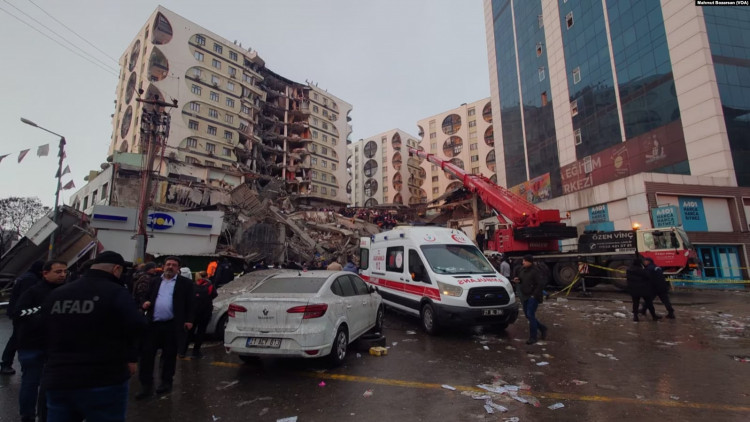More than 21,000 people have died and tens of thousands have been injured after a 7.8 magnitude earthquake devastated Turkey and Syria on Monday, according to officials.
The World Health Organization stated that cold and snow could cause "worsening and horrific conditions" for survivors, many of whom are homeless.
Rescue crews are racing against the clock to extract people from collapsing structures. Some heartening gains were observed in Turkey, but a humanitarian organization said that optimism is waning in northwest Syria.
An extensive worldwide relief operation is gaining momentum. Thursday, the World Bank provided $1.78 billion in aid to Turkey, including urgent funding for the reconstruction of basic infrastructure and assistance for earthquake victims. However, the efforts of 100,000 or more rescue professionals on the ground are hampered by a variety of logistical obstacles, such as a lack of vehicles and severely damaged roads.
Antonio Guterres, the head of the United Nations, cautioned that the full depth of the calamity was still "unfolding before our eyes," particularly in Syria, where a protracted civil conflict had decimated the country.
The first UN humanitarian aid entered northwestern Syria through the Bab al-Hawa crossing in Idlib on Thursday. The crossing is the sole method for UN aid to reach the region without passing through territory governed by the Syrian government.
Hundreds of thousands of Syrians have been rendered homeless in the dead of winter. In the northwestern region of Syria, when temperatures fall below freezing, a large number of people reside in improvised shelters, mosques, and the rubble of demolished structures.
Mousa Zidane, a volunteer with the "White Helmets," also known as Syria Civil Defense, told CNN on Thursday that "tens of thousands of families are currently homeless throughout northwest Syria" as a result of the earthquakes.
The volunteer organization announced that they will continue rescue efforts in opposition-controlled northern Syria through Friday. However, the organization stated that the likelihood of locating survivors is "fading."
The affected regions include the countrysides of Aleppo and Idlib in northern and northeastern Syria, respectively.
The magnitude 7.8 earthquake was one of the most powerful to hit the region in more than a century. In response to significant aftershocks, the Turkish Disaster and Emergency Management Agency requested international assistance.
The International Federation of Red Cross and Red Crescent Societies initiated "immediate cash assistance" from its Disaster Response Emergency Fund to aid relief efforts in both nations.
Many more organizations are also responding on the ground. You can do your part by clicking here.





